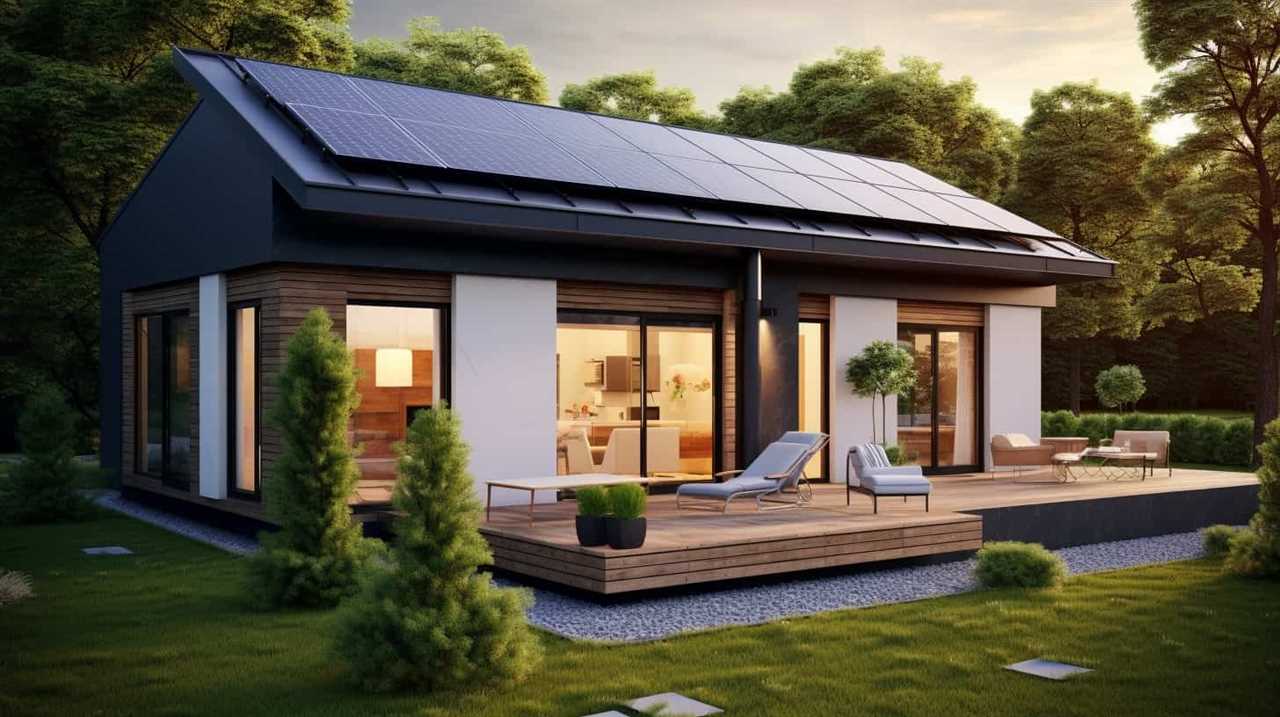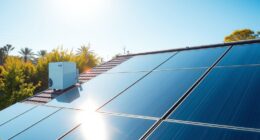As we explore the realm of energy conservation, it is evident that efficient heat pumps play a crucial role. They act as the foundation, assisting in preserving valuable resources and minimizing our impact on the environment.
In this article, we explore the key factors affecting heat pump energy efficiency and strategies to maximize savings. We also delve into the role of proper maintenance and advancements in technology.
Join us on this journey to understand why efficient heat pumps are crucial for a sustainable future.
Key Takeaways
- Heat pump installations are integral to energy-efficient home design.
- Maximizing heat pump efficiency reduces energy consumption in residential buildings.
- Smart thermostat integration allows for better control and automation of heat pumps.
- Regular maintenance maximizes heat pump efficiency and reduces operating costs.
The Importance of Heat Pump Efficiency for Energy Conservation
We believe improving heat pump efficiency is crucial for conserving energy. Heat pump installations are an integral part of energy-efficient home design. A heat pump is a device that transfers heat from a source to a destination using a small amount of energy.
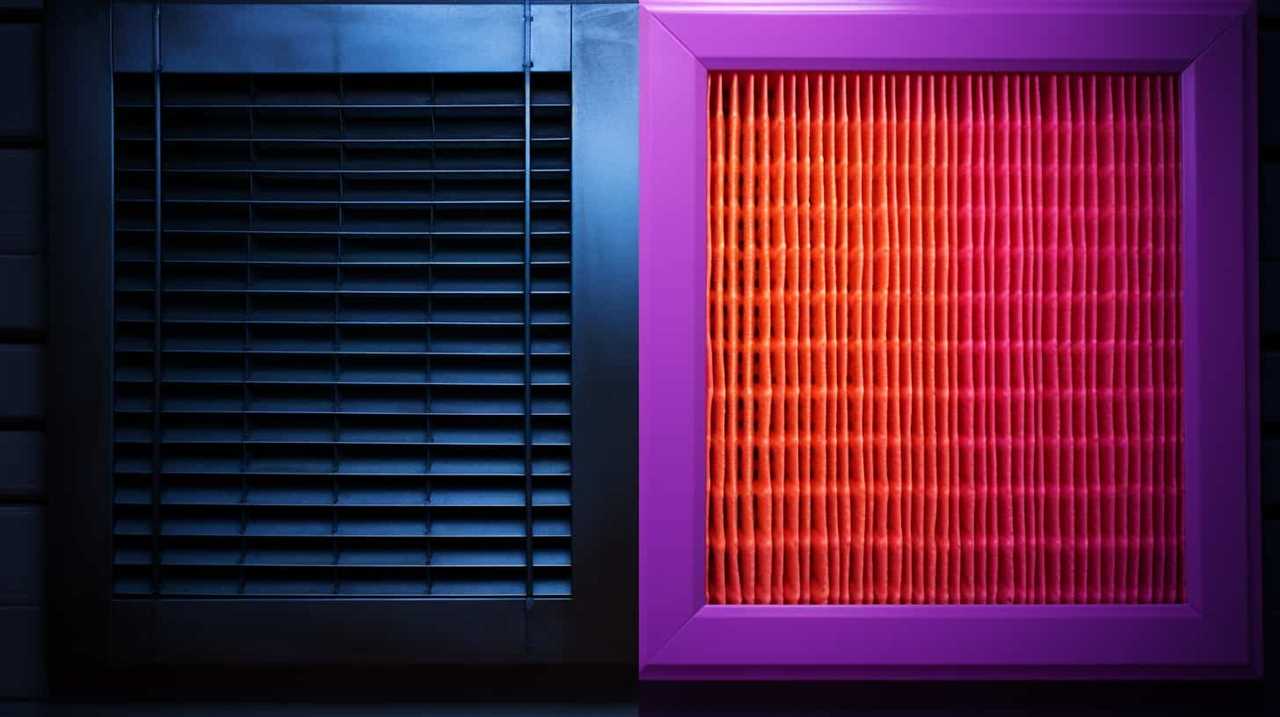
By maximizing the efficiency of heat pumps, we can significantly reduce energy consumption in residential buildings. Proper heat pump installation is imperative to ensure optimal performance and energy savings. This includes proper sizing, correct ductwork design, and efficient refrigerant charge.
Additionally, energy-efficient home design incorporates features such as proper insulation, air sealing, and efficient windows to complement the heat pump’s performance.
Key Factors Affecting Heat Pump Energy Efficiency
To maximize heat pump energy efficiency, it’s important to consider the key factors that affect its performance.
Two crucial factors that directly impact heat pump energy consumption are the size and design of the heat pump system. An oversized heat pump may cycle on and off frequently, which reduces its efficiency. Conversely, an undersized heat pump will struggle to meet the heating or cooling demands, resulting in increased energy consumption.
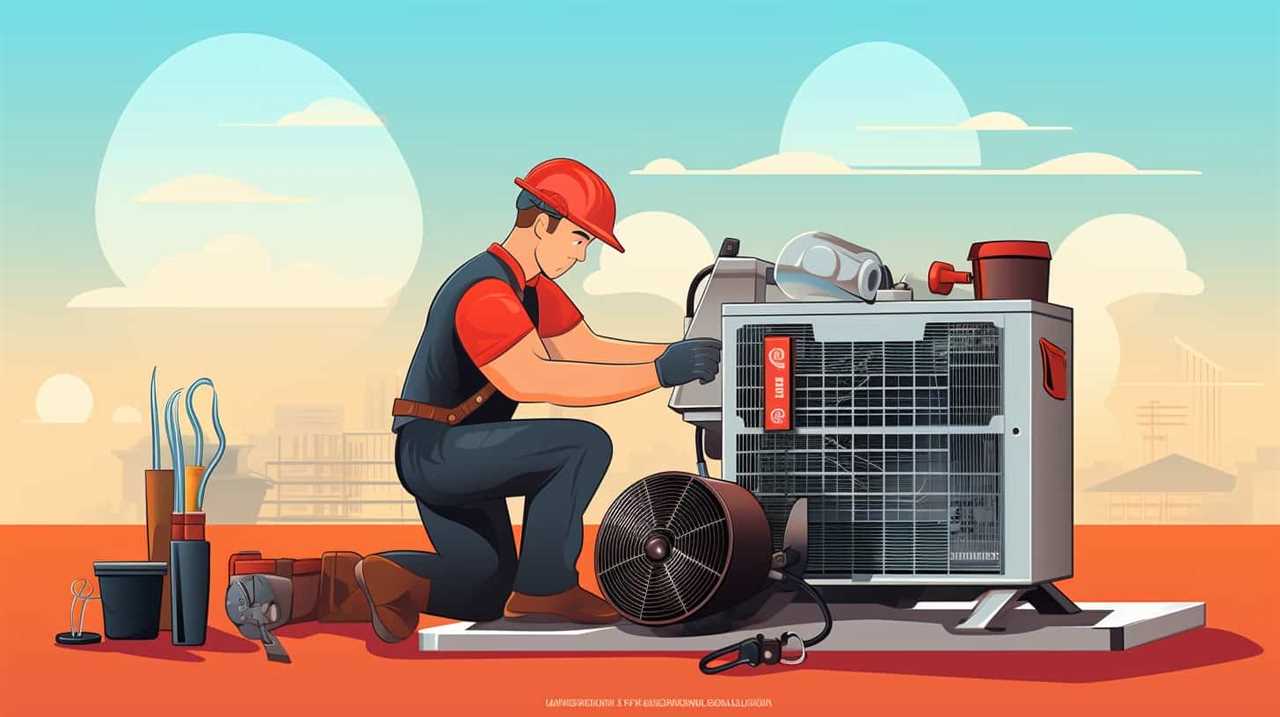
Another factor that affects heat pump energy efficiency is the operating temperature. Heat pumps are typically more efficient when operating within a specific range, and extreme temperatures can decrease their performance.
Strategies to Maximize Energy Savings With Heat Pumps
Our goal is to maximize energy savings with efficient heat pumps.
Two strategies that can help achieve this are smart thermostat integration and optimizing air flow.
Smart thermostat integration allows for better control and automation of the heat pump, ensuring that it operates at the most energy-efficient settings. By integrating the heat pump with a smart thermostat, homeowners can easily adjust temperature settings, create schedules, and monitor energy usage remotely. This can result in significant energy savings by avoiding unnecessary heating or cooling.

Another important strategy is optimizing air flow within the home. Properly sized and installed ductwork, along with regular maintenance, can ensure that the heat pump operates efficiently and effectively. It’s important to seal any leaks in the ductwork and clean or replace air filters regularly to maximize airflow and minimize energy waste.
The Role of Proper Maintenance in Heat Pump Efficiency
Regular maintenance plays a crucial role in maximizing heat pump efficiency. Proper servicing ensures that the heat pump operates at its optimal performance level, resulting in energy savings and reduced operating costs. Here are four key ways that regular maintenance impacts heat pump efficiency:
-
Cleaning: Regular cleaning of the heat pump’s coils and filters prevents dirt and debris from accumulating, which can restrict airflow and reduce efficiency.
-
Lubrication: Keeping the heat pump’s moving parts well lubricated reduces friction and improves overall performance.

-
Inspection: Regular inspections by trained technicians can identify and address any potential issues before they escalate, ensuring the heat pump operates efficiently.
-
Calibration: Adjusting and calibrating the heat pump’s controls and settings can optimize its performance, maximizing efficiency.
Innovations and Advancements in Heat Pump Technology for Energy Conservation
We have witnessed remarkable advancements in heat pump technology that contribute to energy conservation. These innovations are crucial in our efforts to reduce energy consumption and reliance on fossil fuels. One significant advancement is the integration of smart thermostats with heat pumps. This technology allows for more precise control of the heating and cooling process, optimizing energy usage and reducing waste. Additionally, heat pumps are now being designed to work in tandem with renewable energy sources such as solar panels and geothermal systems. This integration further enhances the energy efficiency of heat pumps, as they can utilize clean and sustainable energy to operate. The following table illustrates some of the key innovations in heat pump technology for energy conservation:
| Innovation | Description | Benefits |
|---|---|---|
| Smart thermostat integration | Integration of smart thermostats to optimize energy usage | Precise control, reduced waste |
| Renewable energy sources | Designing heat pumps to work with renewable energy sources | Utilization of clean and sustainable energy, enhanced efficiency |
These advancements in heat pump technology play a vital role in our ongoing efforts to conserve energy and move towards a more sustainable future.
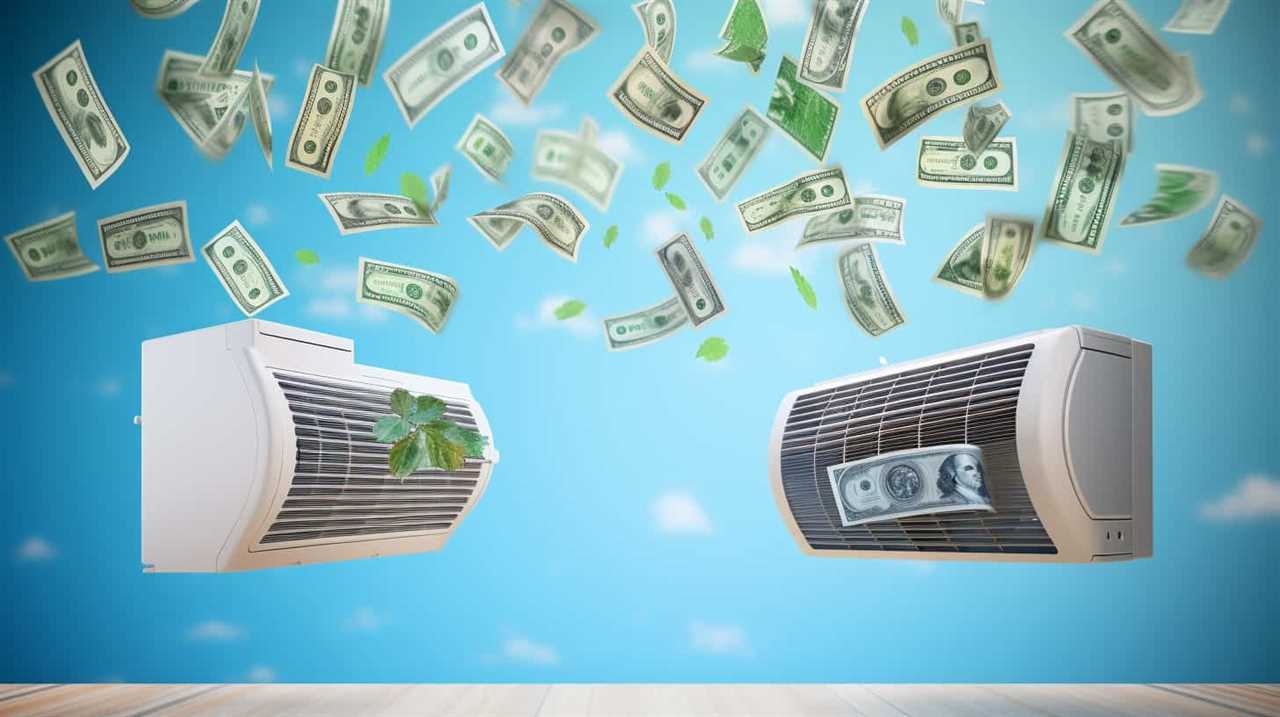
Frequently Asked Questions
How Much Money Can I Save on My Energy Bills by Using an Efficient Heat Pump?
We can save a significant amount on our energy bills by using an efficient heat pump. The energy savings and return on investment make it a worthwhile choice for reducing our expenses.
Are There Any Government Incentives or Rebates Available for Purchasing and Installing an Efficient Heat Pump?
There are government incentives and rebates available for purchasing and installing efficient heat pumps. These programs aim to encourage energy savings and provide financial support to homeowners and businesses investing in energy-efficient technologies.
What Are the Environmental Benefits of Using an Efficient Heat Pump for Heating and Cooling?
Using efficient heat pumps for heating and cooling has significant environmental benefits. They reduce energy consumption, resulting in lower greenhouse gas emissions and air pollution. This helps mitigate climate change and improve air quality.
Can an Efficient Heat Pump Be Used in All Climates, Including Extremely Cold or Hot Regions?
Efficient heat pumps can be adapted for use in all climates, including extreme cold or hot regions. Their efficiency in extreme climates is crucial for effective heating and cooling, resulting in energy conservation.

Are There Any Specific Requirements or Considerations for Installing an Efficient Heat Pump in an Existing Home or Building?
When installing an efficient heat pump in an existing home or building, there are specific considerations and installation requirements to keep in mind. Proper sizing, electrical needs, and adequate space are crucial for optimal performance.
Conclusion
In conclusion, efficient heat pumps play a crucial role in conserving energy and reducing environmental impact. Despite potential concerns about initial costs, investing in high-quality heat pumps can lead to significant long-term savings.
Imagine a future where every household uses efficient heat pumps, reducing energy consumption and greenhouse gas emissions.
Through proper maintenance and advancements in heat pump technology, we can pave the way towards a more sustainable and energy-efficient future.
